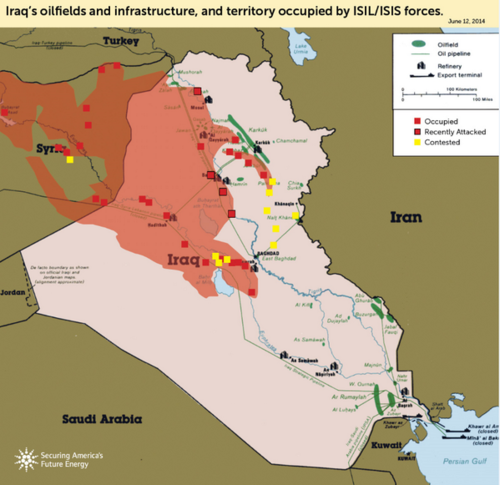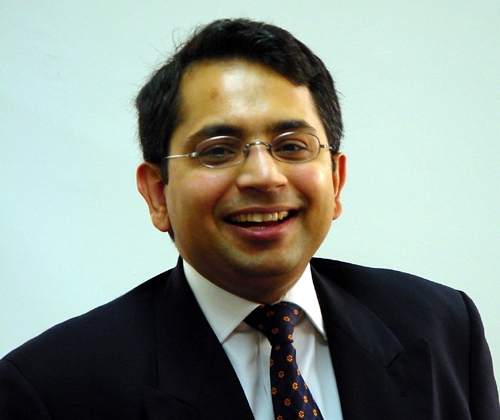TEN Key Questions About Iraq: Critical to Understanding What Happens Next And Why Our Future May Depend On It
London, UK - 26th June 2014, 11:45 GMT
1. How did Iraq get to this point of losing control to ISIS (Islamic State of Iraq and Syria) with Baghdad dragged ever closer to defeat and occupation?
2. Who are the insurgents really? What is ISIS? Why were they not regarded as dangerous in Syria over the last few years as they are suddenly in Iraq?
3. Why and how has the Syria conflict made ISIS much stronger? Which countries aided, abetted and financed ISIS in Syria?
4. How does ISIS raise money in Syria like a government by selling electricity and by collecting the equivalent of taxes?
5. Why has the Iraqi government made this tension worse by persecuting Sunnis and through other missteps? Why were the Shias not stopped earlier?
6. As the regional Shia power house, if Iran gets involved even deeper, could this conflict get much bigger?
7. Given that Iraq has another major ethno-religious group, the Kurds, how could they matter in this conflict?
8. Could the chaos and the power vacuum left behind after the US-led invasion (2003) and the US exit (2011) been avoided?
9. How vital is a stable Iraq and Levant to US and European interests as well as Russian and Chinese interests?
10. What options do the US and Europe as well as Russia and China really have to stabilise Iraq at this late stage?
 Step by Step: ISIS Occupation of Iraq and Syria
Step by Step: ISIS Occupation of Iraq and Syria
[STOPS]
What are your thoughts, observations and views? We are keen to listen and to learn.
Best wishes

D K Matai
ATCA: The Asymmetric Threats
Contingency Alliance is a philanthropic expert initiative founded
in 2001 to resolve complex global challenges through collective
Socratic dialogue and joint executive action to build a wisdom
based global economy. Adhering to the doctrine of non-violence,
ATCA addresses asymmetric threats and social opportunities arising
from climate chaos and the environment; radical poverty and microfinance;
geo-politics and energy; organised crime & extremism; advanced
technologies -- bio, info, nano, robo & AI; demographic skews
and resource shortages; pandemics; financial systems and systemic
risk; as well as transhumanism and ethics. Present membership
of ATCA is by invitation only and has over 5,000 distinguished
members from over 120 countries: including 1,000 Parliamentarians;
1,500 Chairmen and CEOs of corporations; 1,000 Heads of NGOs;
750 Directors at Academic Centres of Excellence; 500 Inventors
and Original thinkers; as well as 250 Editors-in-Chief of major
media.
The Philanthropia, founded in 2005, brings together over
1,000 leading individual and private philanthropists, family offices,
foundations, private banks, non-governmental organisations and
specialist advisors to address complex global challenges such
as countering climate chaos, reducing radical poverty and developing
global leadership for the younger generation through the appliance
of science and technology, leveraging acumen and finance, as well
as encouraging collaboration with a strong commitment to ethics.
Philanthropia emphasises multi-faith spiritual values: introspection,
healthy living and ecology. Philanthropia Targets: Countering
climate chaos and carbon neutrality; Eliminating radical poverty
-- through micro-credit schemes, empowerment of women and more
responsible capitalism; Leadership for the Younger Generation;
and Corporate and social responsibility.

